 By Michael Ashcraft —
By Michael Ashcraft —
Christian Hip Hop is imploding. Its stars, lured by secular money, are leaving. New singers are ditching hard-fought standards (like no cuss words) and marginalizing salvation. It’s become disunited and sexist.
From what you read or watch online, you get the feeling Christian rap has a bad rap and its fans are now singing the blues. But is it true that Christian Hip Hop is descending to a deplorable demise?
A survey of CHH conducted by this God Reports journalist suggests that, contrary to controversy, Christian Hip Hop has never been more robust or vibrant. It’s reaching growing audiences and diversifying its message. It’s getting played all over the place, from the gym to WWE.
“Andy Mineo and Lecrae and some of these guys coming in rap are as good as the top rappers in the game,” says Sway Calloway, the host of the secular shows “Sway in the Morning” on SiriusXM Shade45 and MTV’s TRLAM. “It gives me chills when I can hear someone rap as good as them and put God in it.”

Part of the “problems” of CHH can be chalked up to growing pains. And another part is simply click bait; platforms fabricate or inflate controversy to swell their views and, by extension, their bottom line.
Any discussion of the current state of Christian rap starts with its de facto father, Lecrae. A fusillade has been unleashed on him for being too political, for signing with a secular label, and for working with artists who punctuate their work with profanity.
“Partnering with secular artists is very, very dangerous. You don’t see that worked out in scripture,” Wil Addison said in 2015 on Trackstarz. “Lecrae’s grown on the back of the church, and it seems like at one point he jumped off… You’re abandoning what you built your platform on.”
Wil Addison is not alone in his concern for Lecrae’s direction. Dismay is expressed over his collaboration with Ty Dolla Sign; is Lecrae muddying his message by working with a secular artist who raps X-rated filth?
Lecrae Devaughn Moore is no stranger to muck. He was sexually, emotionally and physically abused as a youngster. He learned to seal up the pain and pretend it wasn’t there, he said recently at Yale University.
Without a father in the house, Lecrae looked to male role models in the community and took up drug trafficking as a teenager. His grandmother was a churchgoer, but Lecrae wasn’t interested — at first.
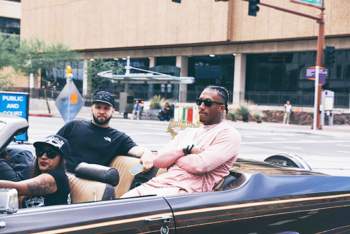
In college he responded to the gospel and was piqued by evangelistic rappers. At a time when nobody thought Christian rap would sell, he co-founded Reach Records in 2004 and started releasing albums. He won Grammies and topped Billboard charts.
When he was at his peak, he signed with Capitol Records, which has been making incursions into the increasingly profitable Christian hip hop market, snapping up the surest bets (also NF, Social Club Misfits). How could he own a Christian label and become an artist on a secular one (albeit their Christian department)?
It seems Lecrae was turning into a missionary. He saw the chance to work with secular artists and rap at more venues as simple evangelistic math.
If the Capitol signing wasn’t controversy enough, Lecrae — who’s always been vocal for African American rights — joined the Black Lives Matter movement. There were a string of innocent blacks gunned down by police, and the long-suppressed feelings of rage and powerlessness from the childhood abuse reared its ugly head.
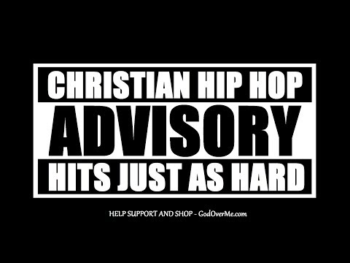 Lecrae found himself marching on the streets in protests — and in the cross hairs of a political reaction against ambushing cops and a tide that swept Trump into the presidency. Broad swaths of fans and Christian leaders threatened to bolt. Lecrae couldn’t understand why they wouldn’t support the cause of the oppressed and judge the sins of the oppressors.
Lecrae found himself marching on the streets in protests — and in the cross hairs of a political reaction against ambushing cops and a tide that swept Trump into the presidency. Broad swaths of fans and Christian leaders threatened to bolt. Lecrae couldn’t understand why they wouldn’t support the cause of the oppressed and judge the sins of the oppressors.
At an October concert in Los Angeles, Lecrae admitted that the last two years have brought disillusionment and depression. He even contemplated turning his back on Christianity altogether, he said. But a wise old Christian asked him to consider if God — not his fans — had ever abandoned him. Days of meditating that question brought the man of God back to God.
At the LA performance, Lecrae’s language undermined the accusation that he’s ditching his faith. Lecrae spoke of struggle and confusion. But his words were a testimony in front of the church.
Lecrae’s flailings are emblematic of the growing pains of the wider spectrum of CHH artists. There are hundreds of rappers who associate to some degree with Christianity. No survey could cover all of them, but among those examined in in this census, the conclusions award CHH a clean bill of health: souls are being won, disciples are being made and the cause of the Gospel is advancing. The good things outweigh the bad:
Influence on secular artists

One of the biggest proofs of the strength of CHH is its impact on secular rap. This is ironic because people keep worrying that CHH stars are going to be influenced by worldly stars if they cross over into the secular market. But they don’t see that CHH is exerting its own gravity that pulls on mainstream mike-kickers.
Today, Kendrick Lamar, Kanye West and Chance the Rapper — all top rappers — have mentioned God in a positive way in their music. Snoop Dogg, saying he’s returning to his Christian upbringing, just produced a double gospel album.
In “Jesus Walks,” Kanye says:
They say you can rap about anything except for Jesus
That means guns, sex, lies, videotape
But if I talk about God my record won’t get played, huh?
Meanwhile, new artists like John Givez are returning to their parents’ faith, though not perfectly, and becoming a testimony through their music. Malice renamed himself No Malice and began spitting the Christian message. He saw the light: his previous music was leading listeners down the wrong path and he wanted to rectify it.
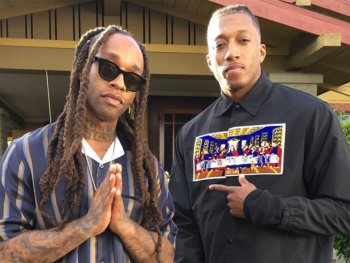
This is what is missed with the Lecrae-Ty Dolla Sign collaboration. While Christians bemoan the “loss” of their star, they’re missing the positive — the potential of gaining for Heaven a worldly singer.
Once upon a time, secular rap artists and fans rolled their eyes at CHH, which they loathed like an embarrassing kid brother. But now such collaborations prove that secular artists have moved light years beyond the eye roll. They are more than giving the nod to CHH; it is now “game respects game.”
Saving souls in the streets
Getting celebrities saved is cause for enthusiasm. But we need to remember that God is no respecter of persons. The unheralded are just as important to Him as the BET idol. And here too CHH has a positive balance sheet.
Aaron Cole reported on Twitter that his music touched the son of a drug dealer. Shai Linne started a church in Philadelphia to create an ethos in which street sinners could feel comfortable in.

One way for CHH to reach sinners is when its music gets featured in non-Christian venues. When CHH gets used in movies or played at the gym, the exposure has the potential to draw in unsaved, new fans much like a church picnic can draw sinners to church where they can hear the message of salvation.
On this front, it’s worthwhile to mention that Derek Minor was featured on Black Ink Crew, and Social Club Misfits got their music used on WWE. When the NBA Warriors wanted a new anthem for their basketball team, they tapped outspoken Christian rapper Bizzle for the job.
Even a Louisville strip club played Lecrae. When asked about it, he responded with the sarcasm that is becoming his go-to response to the controversy that hounds him as CCH’s #1 man: “I’m a real rapper now. Everything I’ve done earlier pales in comparison. I’ve made it,” he told Rapzilla in 2015. On a serious note he added that he supports ministry to the women trapped in the sex industry, and the power of the Gospel in his message needs to get where sinners are.
Marriage

The issue of marriage is another area where CHH stands proudly. While worldly artists typically refer to women as b—-es and h–s, Jesus believers extol their wives. It is incredibly refreshing to hear Andy Mineo brag NOT about a one-night stand but his spouse:
My wife in them high heels
Ooh, high five! That’s nice!
Enshrining marriage is everywhere in Christian Hip Hop. It starkly contrasts with the misogyny and meaningless sex permeating worldly rap, and it’s bound to attract thousands of lonely, broken hearts to Jesus. It wouldn’t be a stretch to prescribe a regular dose of CHH as an antidote to a rocky marriage.
Creativity and quality
Josh Keefe racked up 547,000 YouTube views critiquing the lack of creativity in Christian music. “Every song sounds like the last,” he says. “I find the messages of these songs tame and really weak. I find them monotonous and not relatable for adults who face complicated problems.”
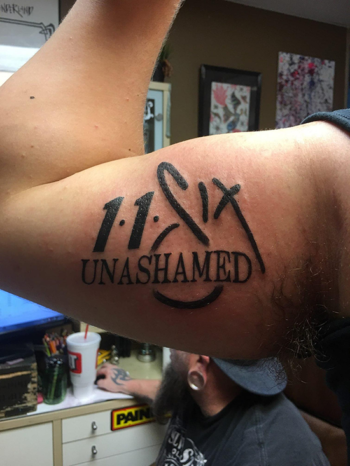
Those criticisms can’t be leveled against CHH, whose lyricists venture deep into human pathos. Datin’s latest album explores the pain of a divorce he did everything to avoid. His wife filed, served and moved on, ignoring his pleas for counseling, he says.
CHH plumbs the depths of sociology, psychology and evil. Describing broken homes, discrimination and disadvantage, they transport listeners to “the trap,” rap nomenclature for the neighborhood where kids hardly hope to break out of drugs and poverty.
Many of CHH spitters are college graduates, and their lines show poetic prowess. There is irony, paradox, oxymoron and other figurative language to admire. CHH is not limited to street smack; Shai Linne teaches theology much in the same way that the old hymns taught doctrine. Fusing seminary with rap, he even has a song about the hypostasis.
As far as musical quality, CHH is no longer knockoff. As a matter of fact, it is the mainstream that is copying CHH.
The beatline of Katy Perry’s “Dark Horse” seems to have been lifted almost unaltered out of Flame’s “Joyful Noise” — so much so that Flame sued and was granted in August a favorable decision setting the stage for a fuller trial. In the comment sections on videos about the topic, some Christians suggest Flame should “turn the other cheek” and not sue, but a win in court attests to the quality of CHH. (Update August 2019: Flame was awarded $2.87 million after a court determined Perry did in fact steal the beat line.)
Jay of The Crew says he knows of several more copyright infringement cases that underline CHH’s originality.
No longer knockoff, CHH is now knockout.
Financial sacrifice
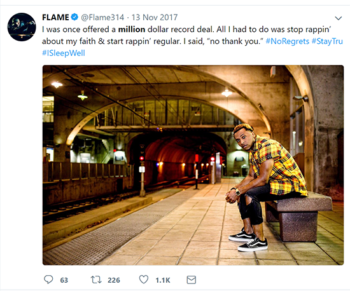 One of the criticisms leveled against CHH is that old and young stars are chomping at the bit to sell out. No sooner did Aha Gazelle sign with Reach Records than he dissed CHH because he thought he could make more money outside.
One of the criticisms leveled against CHH is that old and young stars are chomping at the bit to sell out. No sooner did Aha Gazelle sign with Reach Records than he dissed CHH because he thought he could make more money outside.
But for every artist who is a shameless money hunter, there are more who shun it. Flame said in 2017 he turned down a $1 million recording deal that would be granted if only he stopped rapping about Christ. He is not alone.
One Christian record label is even named “God Over Money.”
If CHH is a tool in the hands of God to reach the lost, then it’s good that its luminaries subordinate riches.
Sanctity of ministry and extraordinary honesty
In July, K. Allico created a stir when he abruptly left God Over Money after just signing. The explanation was both cause for concern and rejoicing, as explained by Datin on Wade-O Radio.
K. Allico had fasted and prayed. God led him to confess that he was still using drugs and didn’t feel right belonging to a Christian label. He wanted to get his life in order and viewed GOM as holy ministry that he didn’t want to besmirch with a tainted testimony.
His situation was unusual but reflected a respect for the sanctity this ministry. In a genre where “being true and real” is abbreviated “trill,” CHH rappers go beyond non-Christian colleagues. They openly share their innermost failings and discuss repentance and grace.
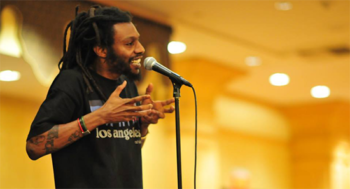
Bizzle startled listeners when he rapped about his struggles with pornography and the cycles of self-condemnation and anguish. Propaganda followed suit with confessions about lust. The latest has been Andy Mineo, who didn’t just slip it in discreetly and hope it got overlooked. At his concert with Lecrae in Los Angeles in October, Mineo showcased “Shame” as the dramatic finale to his set.
The fact that these artists share their struggles openly can only encourage the estimated 70 percent of Christian men who view porn regularly.
What about charges of sexism?
In 2017, Catalina Bellizzi — whose stage name is Cataphant — unleashed a tirade on Twitter against sexism in CHH. Two of the top labels, Reach and GOM, don’t have a single female. Females are not given opportunities, she says.

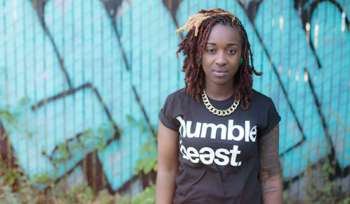
Datin offers some useful observations when he points out some difficulties that are unique to Christian artists. Namely, touring. Rap artists spend a lot of time on the bus. They even sleep on the bus when there isn’t enough money for hotels. The mix-up could create awkwardness or be misconstrued, Datin says.
This is a problem worldly artists don’t worry about. To the contrary, hookups are cause for boasting. But the guys who share their weaknesses so honestly, understandably want to avoid temptation. (UPDATE July 2019: Since the original publication of this article, both Reach Records and God Over Money have signed female rappers)
And criticism about disunity?
When CHH started, few artists ventured into it. They tended to hang together, to support each, to hold each other accountable. They formed unwritten rules; while worldly rap abounded in cuss words, CHH would refrain from stooping to such lows. CHH was used to reach sinners and frequently played inside church.
But as CHH has grown, a lot of the new rappers haven’t accepted those standards. They’ve wanted more creative license. They’ve wanted to appeal more to sinners, many of whom won’t even listen if there aren’t cuss words, since profanity is practically a mark of the genre. Hence, discord between old and new rappers has arisen.
Discord arises over other methodology. When Shai Linne openly questioned Reach’s pivot towards broadening their appeal, it was interpreted by some as the eruption of civil war. The much vaunted “unity” of CHH was cast down.

But two things are important to consider. One is that Shai Linne’s comments are a healthy self-examination of CHH; whether he’s right is not the point. There are elements within the movement who don’t unquestioningly accept every change.
Second, the “rivalries” inside CHH pale in comparison with those in regular rap, where outright war is fought and artists draw in fans by stoking controversy. Christian rappers generally apologize to each other and express themselves only in the most respectful terms.
When Datin felt that Lecrae was criticizing his fellows of CHH when he moved into the secular market, he expressed it on a video. Lecrae responded with an apologetic clarification, and Datin took down his first video and said he was moving on.
If controversy is negligible, why so much air time?
CHH is a powerful tool for outreach and edification. Why then does it seem there are so many kerfuffles?
There’s a simple reason, if you go on YouTube or social media, you’ll eventually find “bad news” in CHH. Controversy sells. Both YouTube and YouTubers know this and take advantage of the psyche’s penchant for problems. YouTube’s auto-suggest involves it in its algorithms, and YouTubers leverage controversy to acquire views and viewers in a bid for relevance and profitability.

The Crews’ videos prove this (views as of Oct. 9, 2018). Criticism of GOM? 23,000 views. Aaron Cole’s music gets someone saved: 800 views. Eminem disses NF? 601,000 views. Social Club is safe after flying past hurricane: 427 views. It’s called click bait and many are seduced into clicking on it.
Of course, any channel that purports to cover CHH news must include the bad with the good, and mostly they seem to do so responsibly. But the dynamics of ranking and humanity’s fascination with the macabre conspire to catapult controversy.
What becomes clear is that CHH is a healthy, fruitful ministry, though far from perfect. Self-examination is an important means to maintaining its health.
“If they put scripture or refer to God in their hip hop, I find it more meaningful and more compelling and more beneficial to those who are tuned in,” Sway says on a Rapzilla video. “I like music with a substance and leading people in a positive direction. I think our industry is plagued with too many derogatory or negative approaches or outlooks. A lot of it is generated by pressure. CHH artists are pushing a message that’s not theirs; they’re conduits. I find it interesting.”
Read about other Christian hip hop artists by clicking: 1K Phew – Aaron Cole – Ada Betsabé – Andy Mineo – Benjamin Broadway — Bizzle – Canon – Cass – Datin – Flame – Gawvi – HeeSun Lee – Jackie Hill-Perry – Jarry Manna — JGivens – Joey Vantes — John Givez – KB – Lecrae – Lil T Tyler Brasel– MC Jin – NF – nobigdyl. – Propaganda – Ray Emmanuel – Ruslan – Sevin – S.O. — Social Club Misfits – Steven Malcolm – Tedashii – Tobe Nwigwe – Trip Lee – Wande Isola – WhatUpRG — YB
And secular rappers who have come to Christ (at least to some degree): Chance the Rapper — Kanye West – Kendrick Lamar – No Malice — Snoop Dogg
 And an overview article about the state of affairs in CHH: Christian Hip Hop in Controversy.
And an overview article about the state of affairs in CHH: Christian Hip Hop in Controversy.
The views expressed Mike Ashcraft in this article don’t necessarily reflect those of God Reports. Michael supports his Christian journalism selling bamboo steamers on Amazon.




Comments are closed.